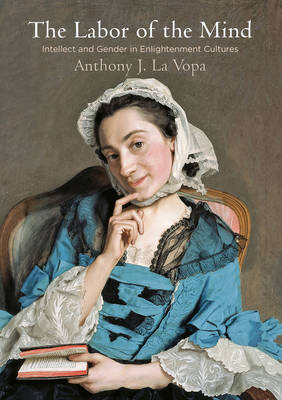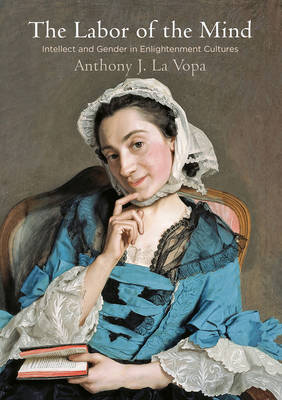
- Afhalen na 1 uur in een winkel met voorraad
- Gratis thuislevering in België vanaf € 30
- Ruim aanbod met 7 miljoen producten
- Afhalen na 1 uur in een winkel met voorraad
- Gratis thuislevering in België vanaf € 30
- Ruim aanbod met 7 miljoen producten
Omschrijving
How did educated and cultivated men in early modern France and Britain perceive and value their own and women's cognitive capacities, and how did women in their circles challenge those perceptions, if only by revaluing the kinds of intelligence attributed to them? What was thought to distinguish the "manly mind" from the feminine mind? How did awareness of these questions inform various kinds of published and unpublished texts, including the philosophical treatise, the dialogue, the polite essay, and the essay in literary criticism?
The Labor of the Mind plumbs the social and cultural logic of the Enlightenment's trope of the manly mind; offers new readings of the textual representations of it; and examines the ways in which the trope was subverted or at least subtly questioned. With close readings of the writings of well-known and less familiar men and women, including Poullain de la Barre, The Third Earl of Shaftesbury, Madeleine de Scudéry, David Hume, Antoine-Léonard Thomas, Suzanne Curchod Necker, Denis Diderot, and Louise d'Epinay, and tracing their social networks and friendships, Anthony J. La Vopa explores the problematic opposition between mental labor as concentrated and sustained work, a labor of abstraction and judgment for which only men had the strength, and an aesthetic of effortless and tasteful play in polite conversation in which women were thought to excel. Covering nearly a century and a half of cultural and intellectual life from France to England and Scotland and then back again, La Vopa locates, beneath the tenacity of assumed natural differences, a lexicon imbued with ambivalence, ambiguity, and argument. The Labor of the Mind reveals the legacy for modernity of a fraught gendering of intellectual labor.
Specificaties
Betrokkenen
- Auteur(s):
- Uitgeverij:
Inhoud
- Aantal bladzijden:
- 360
- Taal:
- Engels
- Reeks:
Eigenschappen
- Productcode (EAN):
- 9780812249286
- Verschijningsdatum:
- 7/09/2017
- Uitvoering:
- Hardcover
- Formaat:
- Genaaid
- Afmetingen:
- 160 mm x 236 mm
- Gewicht:
- 635 g

Alleen bij Standaard Boekhandel
Beoordelingen
We publiceren alleen reviews die voldoen aan de voorwaarden voor reviews. Bekijk onze voorwaarden voor reviews.









